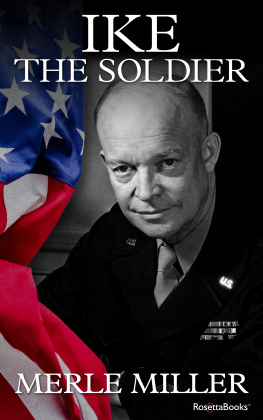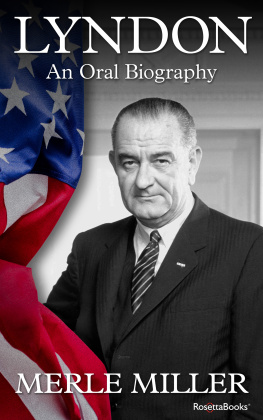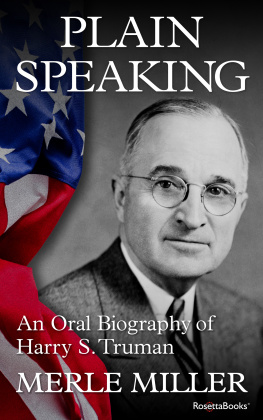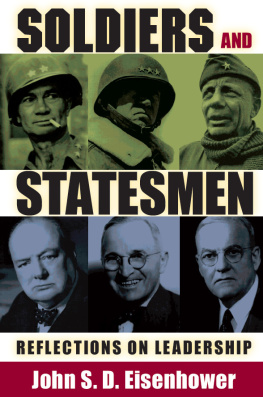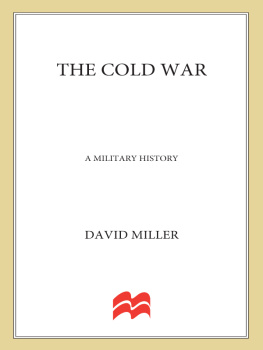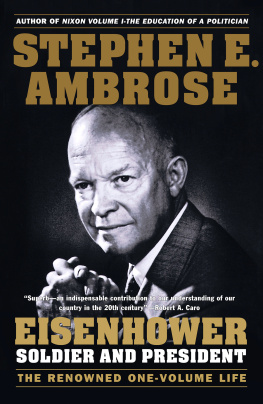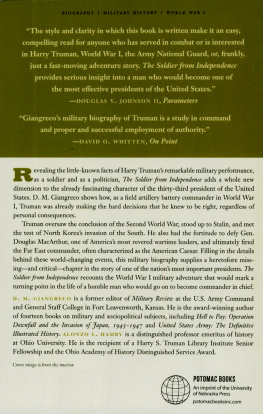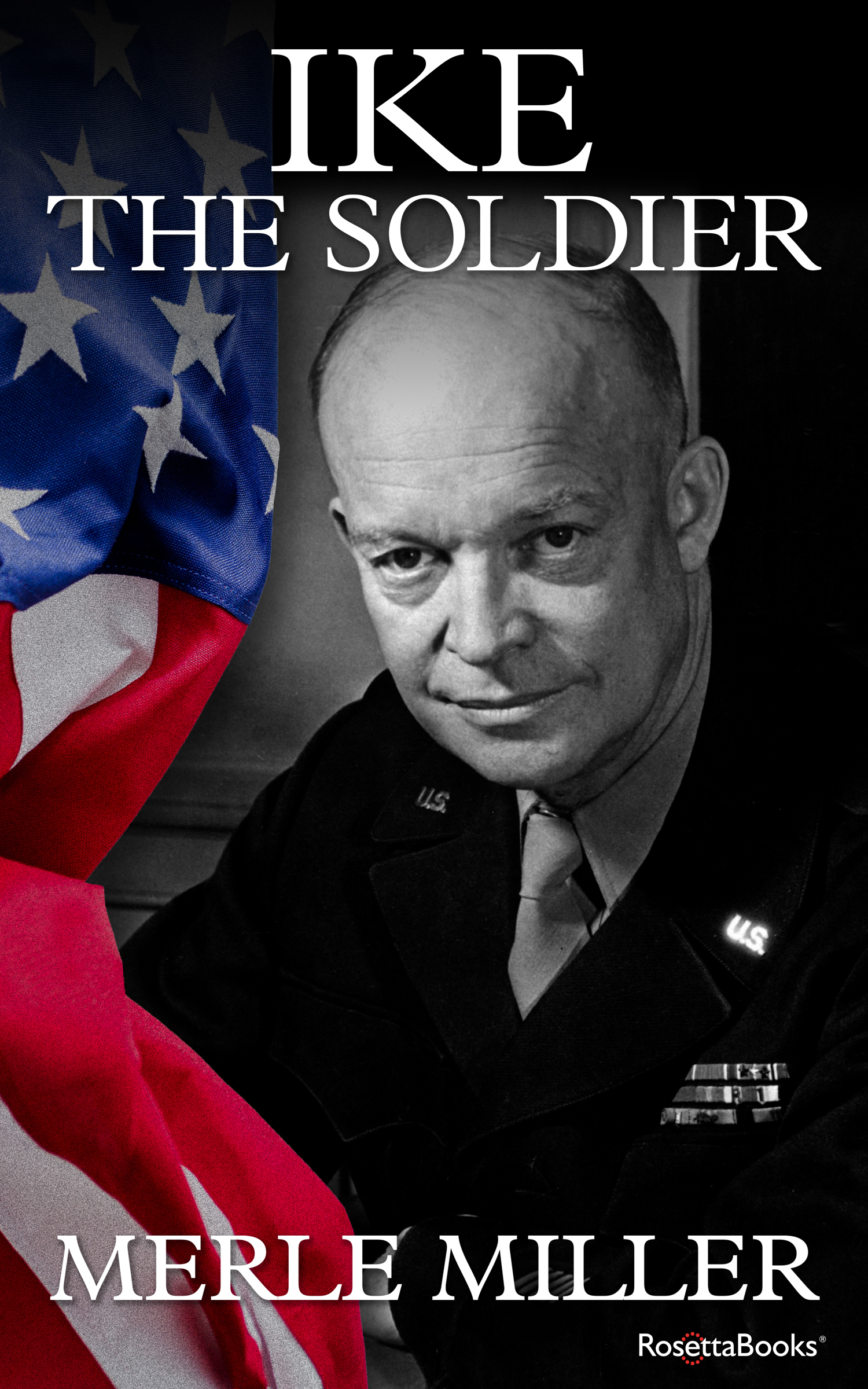Ike the Soldier
As They Knew Him
Merle Miller

Ike the Soldier
Copyright 1987 by Merle Miller
Cover art and Electronic Edition 2018 by RosettaBooks LLC
All rights reserved. No part of this book may be used or reproduced in any form or by any electronic or mechanical means, including information storage and retrieval systems, without permission in writing from the publisher, except by a reviewer who may quote brief passages in a review.
Cover jacket design by Lon Kirschner
ISBN e-Pub edition: 9780795351303
DEDICATION
For CAROL V. HANLEY, my collaborator in the fullest sense. This book is as much hers as it is mine.
ACKNOWLEDGMENTS
Carol Hanley is one of many who assisted me in writing my previous book, Lyndon, and the only one I asked to stay on as my co-writer and researcher for Ike. She is also a close and dear friend. Carol worked with me from the book's inception in 1980 to its completion in 1986, and became as familiar with and as fond of Ike as I am. My debt to her is enormous and the dedication is a small token of appreciation.
I wish to thank David W. Elliott for his support and encouragement throughout the six years it took to write this book.
My thanks, too, to Alan Williams, my editor at G. P. Putnam's, who took over the first half of the manuscript in 1984, shaped and edited it and patiently saw the remainder of the manuscript through its lengthy gestation.
I am most grateful to Barbara Stroh, who typed and retyped the many drafts and revisions into beautiful manuscript pages; to Kathleen Hanley, who helped with the research and transcribed my early tapes of interviews; to John Reese, James Peterson, and Daniel Croswell, skilled historians and researchers in Kansas.
In Pennsylvania, Louise Arnold was particularly invaluable to me for her assistance in researching a wide range of material at the Eisenhower National Historic Site at Gettysburg, and later at the U.S. Military History Institute at Carlisle Barracks.
Once again the author owes a debt of gratitude to the staff of the Danbury Public Library for their generous assistance in finding needed facts and for their patience and understanding.
In addition to the Danbury Library, I used many other libraries for my research and they include the Butler Library Oral History Research Office at Columbia University; the National Archives and the Library of Congress in Washington, D.C.; the Dwight D. Eisenhower Library in Abilene, Kansas; the Herbert Hoover Library in West Branch, Iowa; the Franklin D. Roosevelt Library in Hyde Park, New York; and the Sam Rayburn Library at Bonham, Texas.
I am also thankful to the many friends I made at the U.S. Military Academy Library at West Point. Robert E. Schnare of Special Collections searched through old files and records for most valuable information; Elaine Eatroff, Rare Book Curator and Cataloguer, was particularly patient in finding facts I needed, even facts I had not requested; and Egon Weiss, Head Librarian, gave freely of his time and assistance.
Many offered information and assistance. John M. Manguso, Director, Fort Sam Museum, Fort Sam Houston, Texas; C. W. Munie, Historian/Curator, State of Illinois Military & Naval Department, Camp Lincoln, Springfield, Illinois; Larry Adams, Curator, Mamie Doud Eisenhower Birthplace Foundation, Inc., Boone, Iowa; Gwen Goldsberry, owner and editor of the Colorado Prospector in Denver, Colorado; Ms. Bridget Janus, Librarian, The Gazette, Cedar Rapids, Iowa; Mr. Dan Fitzgerald, Manuscripts Department, Kansas State Historical Society, Topeka, Kansas; Mr. Larry L. Bland, George C. Marshall Research Foundation, Lexington, Virginia.
I am especially indebted to Eisenhower's many classmates, army and civilian associates, and relatives who granted me interviews and were generous with their memories. I am especially grateful to John Eisenhower who gave me many hours of his time and went out of his way to be particularly helpful.
Last, and surely not least, my thanks to the Hanley children, all eight of them, who so generously gave up their "Mom" for the duration of the writing of this book.
If we then ask what sort of mind is likeliest to display the qualities of military genius, experience and observation will both tell us that it is the inquiring rather than the creative mind, the comprehensive rather than the specialized approach, the calm rather than the excitable head to which in war we would choose to entrust the fate of our brothers and children, and the safety and honor of our country.
Karl von Clausewitz, On War
TABLE OF CONTENTS
INTRODUCTION
When I first started living with Dwight D. Eisenhower five years and six months ago, I was mainly interested in his presidency. He had, most people said with almost no effort, kept the United States at peace and prosperous for eight years. Despite a conspicuous number of friends who were members of what in his farewell address he called the "military-industrial complex," he had warned against the dangers of that lethal combination which has now brought this country close to economic collapse. He was not in awe of the Joint Chiefs of Staff. In fact, he worried about a time when there would be a president who did not understand "what those birds are up to." But the kind of man he was didn't interest me mucha dull, passive, lucky man who, as a soldier, had done nothing much remarkable. He had been a political general, a chairman of the board of directors, who had been told what to do by generals and civilians, Roosevelt and Churchill among them. I had spent some time looking into and writing about the lives of two other presidents of the United States. What had happened to this president before he was inaugurated was not of much interest to me. A chapter at most would handle it.
But as I worked, I discovered that Eisenhowerthe manbefore he became president was a story that has never been told. There have been over 100 full-length books about Dwight D. Eisenhower. He must surely be one of the most written about men of this century. But none of the books seemed to consider what kind of man he was and how he got that way, which is what this book attempts to do.
During the time of living with Eisenhower, I changed almost every preconceived idea I had about him. In the course of a year and a half of research, I uncovered a vast amount of material that had never been published; during interviews I learned of stories that had never been told. After another year, I thought: There is more to the man than the upstretched arms and the grin. Then I began to write.
It is very difficult to explain Dwight D. Eisenhower. He went so far, both farther and further than almost any American of this century, and yet he seemed not at all extraordinary. How then to explain his extraordinary journey from Abilene, Kansas, from the small, really quite shabby house on South East Fourth Street to all the places he went? Was it accident? Was it luck? Was he just a smiling country boy, an ordinary man, a run-of-the-mill graduate of West Point who happened to be in the right place at the right time?
No. It was none of these. He took the trouble to make it appear that way. He went to a lot of trouble to appear average, to seem ordinary, to appear guileless. And he fooled most people most of the time, including most of his biographers. A lot of people say they knew him; but I doubt they did. There was layer upon layer, and every time you thought that you really understood him, you realized that you didn't. He was generally considered to be a simple man, but he was not. He was most complex.

